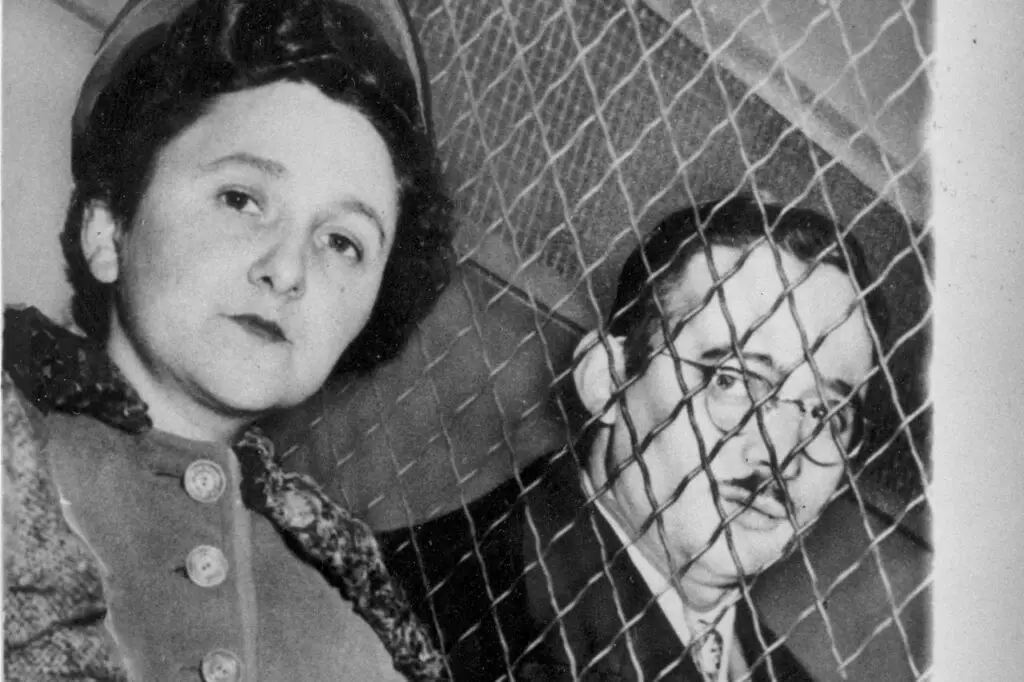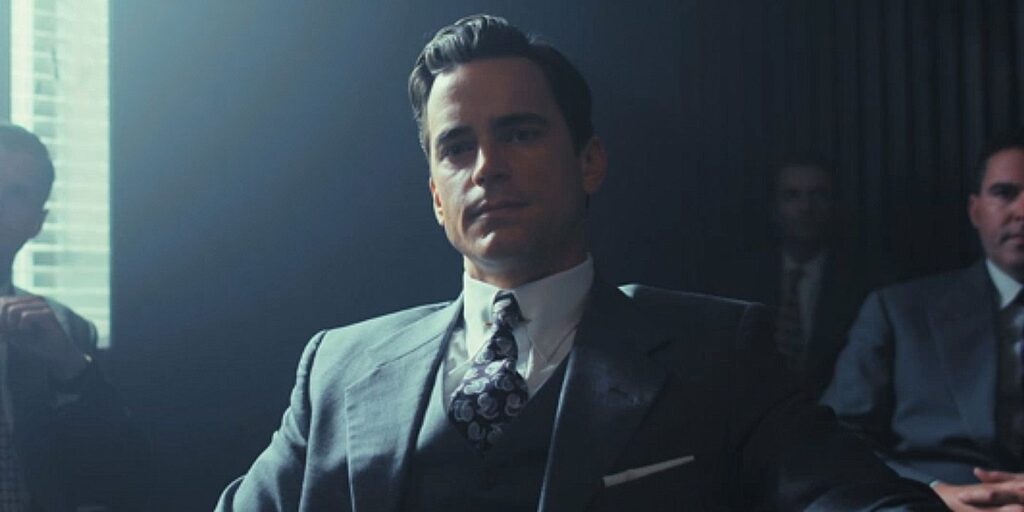The narrative of Julius and Ethel Rosenberg, woven into the fabric of the series “Fellow Travelers,” resonates with a past that still haunts the corridors of American history. As the series unfolds, it mirrors the convoluted web of espionage during the peak of the Cold War, a time when paranoia was not just a state of mind but a national policy.
The Echoes of Espionage: Unveiling the Rosenbergs in Fiction and History
“Fellow Travelers,” the Showtime and Paramount+ series, casts a dramatic light on the real-life espionage saga of Julius and Ethel Rosenberg. This major news story, rooted deeply in the Red and Lavender Scares of the McCarthyism era, remains a poignant reminder of a time when the fear of communism was at its zenith. The Rosenbergs’ portrayal in “Fellow Travelers” is not a direct recounting of their real-life narrative but instead serves as a historical backdrop to the hidden love affair between Hawk Fuller and Tim Laughlin, encapsulating the period’s fear and secrecy.
In the early 1950s, the American public was enthralled and terrorized by the trial of the Rosenbergs, a young New York couple accused of passing atomic secrets to the Soviets. Their case became emblematic of the era’s hysteria, as the nation grappled with the chilling prospect that two of its citizens could betray it so profoundly. Despite a trial that captivated and alarmed the nation, the question of their guilt remains a subject of debate and controversy, with evidence and testimonies that continue to be scrutinized and challenged.
Before the Storm: The Rosenbergs’ Path to Infamy

Julius and Ethel Rosenberg’s journey from a seemingly ordinary American couple to convicted spies is a narrative of transformation wrought by ideology and the pressures of their time. Julius’s leadership in the Young Communist League and his career in electrical engineering placed him in a position where espionage was not just possible but impactful. The technological secrets he had access to were of immense value to the Soviet Union, and his recruitment of a spy ring, including his brother-in-law David Greenglass, was a key component of his espionage activities.
Their conviction and execution in 1953, for crimes that many at the time considered the pinnacle of treason, was a watershed moment in the Cold War. The Rosenberg case personified the American government’s intense scrutiny and pursuit of those they deemed a threat, a pursuit that would have profound implications for civil liberties and national paranoia.
The Rosenberg saga, though rooted in historical facts, has been enveloped in layers of myth and speculation over the years. Their story intersects with the broader themes of loyalty, betrayal, and the fine line between national security and civil liberties. The narrative of “Fellow Travelers” taps into these themes, using the Rosenbergs’ case as a poignant historical reference that informs its dramatic core and raises unsettling questions about the nature of justice and the price of secrecy.
Their trial and execution, often seen through the lens of history as a manifestation of Cold War paranoia, continue to stir debate. Was their sentencing a justifiable act of preserving national security, or was it a miscarriage of justice spurred by a nation’s collective fear? This dual narrative of the Rosenbergs as both spies and victims reflects the complex American psyche during the 1950s, torn between the pursuit of internal security and the preservation of individual freedoms.
The enduring legacy of Julius and Ethel Rosenberg in American history and popular culture, including their depiction in “Fellow Travelers,” underscores the enduring fascination with their story. It is a narrative that challenges viewers to reflect on the consequences of fear, the cost of love in the shadow of suspicion, and the enduring question of what it means to be a patriot in times of crisis.
As “Fellow Travelers” weaves its tale of hidden romance amidst a time of political witch hunts and public hysteria, it also invites a reconsideration of the Rosenbergs’ place in history. Their story, though specific in its details, is universal in its themes of fear, power, and the often destructive intersection of the two.
In telling their story, “Fellow Travelers” not only pays homage to a pivotal moment in American history but also serves as a reminder of the dangers of unchecked paranoia and the importance of integrity and transparency in governance. The Rosenbergs’ tale, whether seen as a cautionary tale or a tragic miscarriage of justice, remains a potent symbol of a time when truth and trust were casualties of a battle between superpowers.
As this article reaches its conclusion, it’s important to remember that the narrative of Julius and Ethel Rosenberg, whether on the screen of “Fellow Travelers” or the pages of history books, is more than a story of espionage. It’s a human story that resonates with the complexities of loyalty, love, and the relentless pursuit of what one believes to be right, even in the face of overwhelming opposition.


